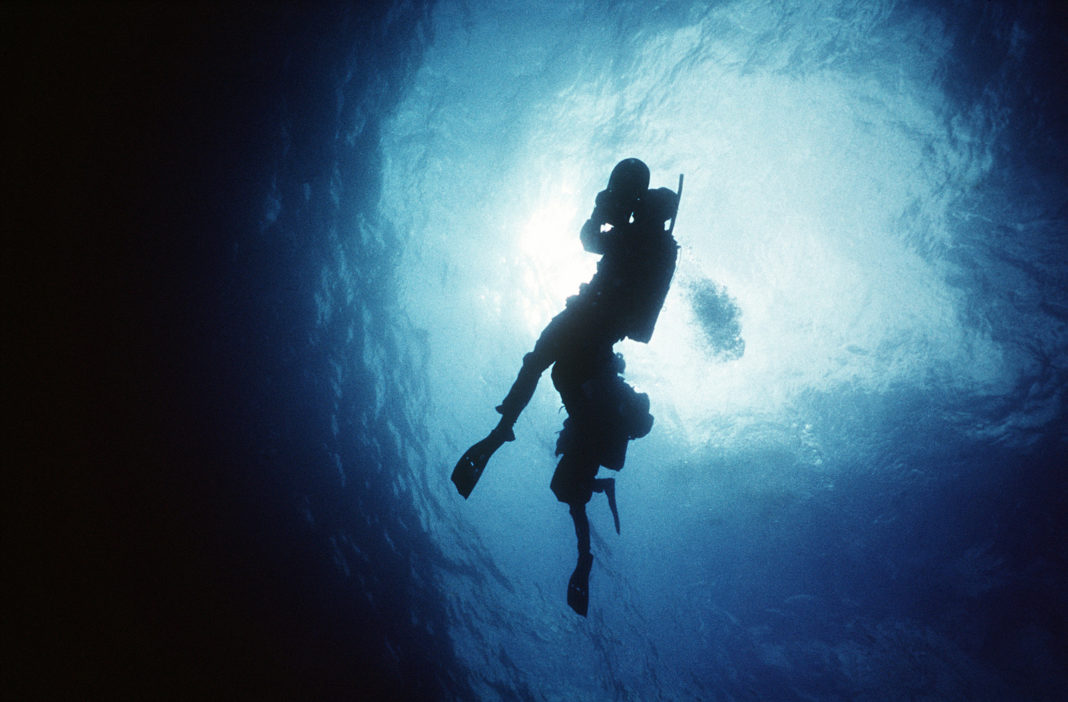Cambodia and its people still suffer from the legacy of that dark time in a variety of ways, including the deadly and hidden threat of abandoned land mines, which still kill or injure more than 100 people every year.
Since the early 1990s, the government’s Cambodian Mine Action Centre (CMAC) has trained deminers and cleared landmines from large swathes of the country. CMAC’s responsibilities took a significant new direction in 2013 when the organization, working in conjunction with U.S. non-profit the Golden West Humanitarian Foundation, decided to establish Cambodia’s first elite salvage diving unit. Their job – to tackle the underwater menace from those years of conflict, the unknown number of bombs and unexploded ordinance (UXO) that litter in Cambodia’s waterways and rivers.
The elite group of nine divers has been trained not only to dive and recover explosives but – given the near-zero visibility that is common in the silt-heavy waters of the Mekong – had to learn to do so blind in depths of up to 30 meters and against strong currents. These are hostile conditions and require extraordinary dexterity, as well as physical and mental strength.
The photographic exhibition ‘Dark Water: Cambodia’s UXO Divers’ by Charles Fox explores and illustrates the world of the divers who are trying to rid Cambodia’s waterways of this legacy. Fox has created a series of documentary photographs showing the men undergoing the training process.
Charles Fox is a British-born photographer currently based in Cambodia and has been working in Asia since 2005. He has a degree in Photojournalism from the London College of Communications. Charles is interested in the legacy of conflict and colonialism and how the ruling actions of the past affect today.
Fox followed the divers in three years, swimming with them and staying after training sessions, learning more about the reasons why each of them dives. Many see it as a patriotic duty. Others have cleared explosives from the land and feel the responsibility to finish the job in the rivers. All hope to use these skills for a similar line of work in the future.
“This story took an unexpected turn,” Fox said. “Beyond the environmental aspect, I became drawn to the human aspect of the piece. As the threat of explosives decreases, I hope this project helps offer these guys a realistic future for work in Cambodia or internationally.”
According to indaily.com.au












